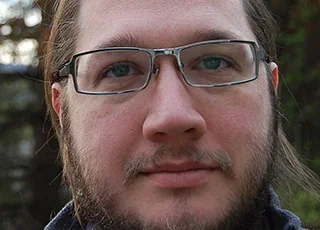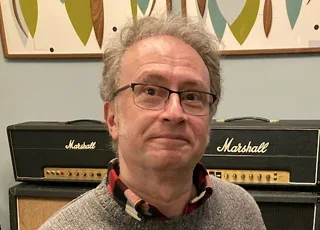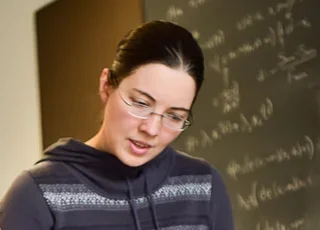
Mathematics
At Bennington, students work closely with faculty to design the content, structure, and sequence of their study and practice—their Plan—taking advantage of resources inside and outside the classroom to pursue their work.
There are many ways to study mathematics at Bennington. The self-directed and problem-oriented approach of a Bennington mathematics education effectively prepares students concentrating in mathematics for the challenges of graduate school or careers requiring mathematics. Our courses also provide the support students in disciplines requiring mathematics (physics, economics, computer science) need to prepare for graduate school or careers in their fields. In addition, students focusing in areas that are not traditionally connected to mathematics (dance, visual arts, literature) frequently take advantage of our unique course structure to weave mathematics into their work in interesting and novel ways. Finally, many students who take even one course in mathematics find that it gives them new perspectives and capacities that carry over into their other work in surprising ways.
Our carefully designed curriculum allows students to take upper-level classes after only one or two introductory courses. This enables students concentrating in mathematics to get to high-level material and interesting questions relatively quickly; it also allows those not concentrating in mathematics to take interesting upper-level courses that would normally be accessible only to math majors. Classes are typically structured around interesting problems, and then filling in the necessary techniques to tackle them, rather than simply being a body of techniques, with application coming later.
Our emphasis is on learning to think like a research mathematician, posing and solving novel questions, even from the first introductory courses. More than simply answering standard questions with given methods, the focus is on formulating one’s own questions, and addressing difficult and open-ended problems similar to those that might come up in genuine mathematical research, or in the real world. To accomplish this, we structure our classes such that the students are doing most of the thinking and talking, with expert guidance and support. By tackling challenging problems within a supportive learning environment, students learn strategies and techniques, and develop the perseverance, to address problems that at first seem impossible.
Student work at Bennington is more than simply a list of courses. Each student works closely with faculty to construct a plan of study centered around the student’s individual interests and goals. This plan weaves together coursework, Field Work Term experiences, and research as complementary ways of learning. In the final year of study, each student concentrating in mathematics does self-directed research in close collaboration with faculty.
Faculty
Andrew McIntyre’s mathematical research concerns problems in geometry related to mathematical physics. His teaching is student centered and historically driven.
Kathryn Montovan uses mathematical modeling and analysis to understand complex ecosystem interactions and to discover the potential evolutionary causes of insect and animal behaviors. Her teaching is based on active learning techniques and is focused on engaging students of all levels in authentic mathematical inquiry.
Visiting Faculty & Technicians

Josef Mundt MAT '06/BA '05 is a mathematician whose interests lie in the visualization of data, building mathematical confidence and connections, and helping others think of mathematics as an art form.

